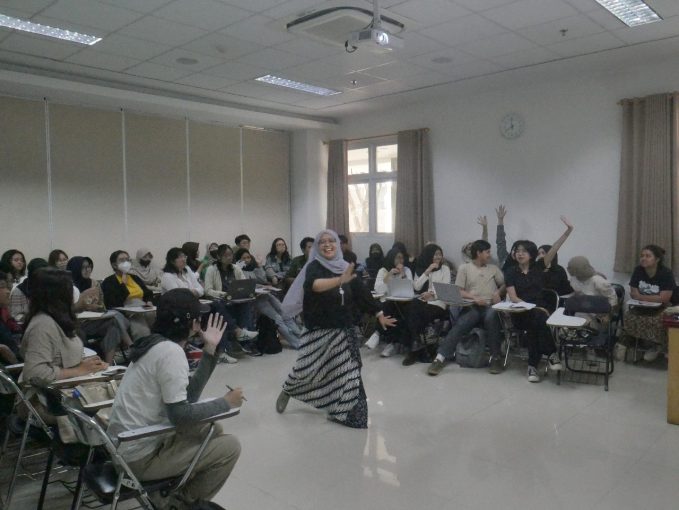
On Friday, 13 October 2023, the French Language and Literature Department held a guest lecture for the Introduction to Gender class. On this occasion, Dati Fatimah, a practitioner in the field of gender, was invited as a speaker. Dati is a Gender Consultant and Member of the SRI Institute Commissioner.
As the opening of this class, Dati shared her career background as a practitioner in the field of Gender. She also explained about the SRI Institute which is a research and education institution that focuses on gender issues. Sri Institute was established to develop perspectives on equality and justice by analysing social phenomena that reflect the unique experiences of each subject of study.
Next, Dati began to direct the audience towards the topic of the lecture this time, which was about gender equality. Dati asked a reflective question, “Where are we in the gender equality that we have practised?”. Indeed, we have heard a lot about the issue of gender equality. This issue is also supported by the sustainable development programme campaign or we often hear the term SDG’s. Indonesia itself has implemented the programme, but in practice, there are often still things that are not in accordance and even out of line.
Dati said that gender construction is unequal. Moreover, in the social construction that exists in our environment, gender is standardised, making it rigid and hierarchical. “Whereas gender is fluid,” said Dati. The fact is that it is not like that, there are men who have feminine traits as well as women who have masculine traits.
The concept of masculinity and femininity is normalised in the implementation of life and makes gender functions compartmentalised. As if a man must always be masculine and a woman must be feminine. In fact, women and men must anticipate, find room for manoeuvre, negotiate. The idea of gender equality aims to humanise not only women but also men.

